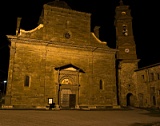Visiting neighbourhoods
This page gives some information about those interesting locations that can be reached from Palazzolo in a one day trip. At first there is information regarding some smaller towns close to Palazzolo that from the tourists point of view are not so well-known but that definitely are worth a visit.
The second part of this page gives information about locations that are a bit further from Palazzolo, although they can also be reached within a one day trip. Most of the important cities of art located in Central Italy can be visited during a one day journey. These locations include e.g. Rome, Florence, Perugia, Siena, Pisa and Assisi.
Besides the centres of art also some nature parks are within a day trip distance. The closest of them is that of Mount Amiata that is only an hours' drive (70 kilometres) from Palazzolo.
Tours to the smaller towns
The following list of smaller centres has been taken from an old tourist magazine of Città della Pieve, from the year 1928, called La patria del Perugino edited by the Pro Città della Pieve Society. This magazine gives, besides a nice presentation of the town and its most important artistic sights, a short presentation of the sights of localities close to Città della Pieve that merit a vist.
Monteleone d'Orvieto
from Città della Pieve 7 km
In the college there is the painting Madonna with the Child and Saints that is a work of the school of Perugino. Here is a photo gallery of Monteleone d'Orvieto.
Ficulle
from Città della Pieve 22,6 km (437 m)
The Church of Santa Maria Vecchia and the local church of Madonna della Maestà have old frescos, that are of some interest. Here is a small photo gallery of Ficulle.
Parrano
from Città della Pieve 22 km (441 m)
Parrano is a small castle town surrounded by a wall in the Province of Terni. It is quite interesting as a place since practically the whole municipality is located inside the town walls. Close to Parrano there is a water fall with caves that is an interesting location for visits during the summer time as the small photo gallery of Parrano shows.
Piegaro
from Città della Pieve 10 km
This city has a special medieval look and is known for its glass factory. The church of the Cross has a Madonna that has been dated to the 15th century.
Mongiovino
from Città della Pieve 17,1 km
The sanctuary of Mongiovino is a beautiful construction of Rocco da Vicenza, from 1528, based on the plans of Bramante and it has rich sandstone decorations outside.
[ Click on the photo above to watch a short video of this place. ]
Santuario delle Grondici
from Tavernelle, 30 min
A canvas dating to 1495 by Gregorio Gregori Teutonico representing the Virgin with the Child, Saints Sebastian and Rocco.
Panicale
from Città della Pieve 23,5 km (441 m)
A beautiful view over the Trasimeno Lake. In the old college there is a Crib and lunette in Sacristy by Benedetto Caporali, a fresco of St. Announced from the 15th century. The church of St. Augustine has a pointed arch portal and paintings of the Giotto school as well as a painting of the Coronation of Mary by Umbrian school of artists. The church of Madonna della Sbarra has a renaissance facade. In the church of San Sebastiano there is an authentic work of Il Perugino, Il Martirio di San Sebastiano (1505), and Virgin and Saints by an unknown painter. On the main square a beautiful fountain from 1400s and also the Palazzo del Podestà is worth mentioning as seen from the photo gallery.
Fontignano
from Città della Pieve 21 km
Church of St. Mary: an antique village where Pietro Perugino did his last work, Madonna and the Child from (1522), and where he has been buried.
Paciano
from Città della Pieve 12 km
Church of St. Josef: Banner of Madonna delle Grazie by Bonfigli and some paintings from 1400. In one of the halls of the confraternity there is the Crucifixion by Francesco from Castel della Pieve (from 1449).
Chiusi
from Città della Pieve 10,2 km (373 m)
An Etruscan Museum and pieces of walls of Etruscan era. The Cathedral (5th or 6th century) with decorations and paintings of Viligiardi, a mosaic imitation and paintings done by the Siena school of artists and in Sacristy 22 interesting miniature chorals. The church of St. Mary of Death (S. Maria della Morte, from 13th century), the church of St. Francis with Romanic style outside. Surroundings of Chiusi: the catacombs of St. Catherine, of St. Mustiola, the tomb of Casuccini, the tomb of Grand Duke, Etruscan Tomba della Scimmia and Poggio Gaiella. Here are some photos from Chiusi.
Chianciano
from Città della Pieve 26 km (477 m)
The Town has an art museum. The Palace of Podesta, the church of St. John the Baptist with a beautiful Roman entrance and a lunette on the facade, the Church of St. Mary of Roses (S. Maria della Rosa) with simple renaissance forms. In surroundings: a bathing establishment. Here is a photo gallery from flickr.com.
Montepulciano
from Città della Pieve 34 km (605 m)
Some of the main interesting sites of Montepulciano are the Church of St. Augustine that has a renaissance façade. The Church of St. Biagio and Canonica by Sangallo, the Church of St. Francis facade and the Civic museum: with beautiful terracotta figures by della Robbia. The Cathedral is also worthwhile to pay a visit. Click here for a photogallery.
Pienza
from Città della Pieve 49 km (491 m)
In Pienza the places to visit are: Cathedral, Piccolomini Palace and Well, by Rosellino (16th century), town Hall with its small museum. The town of Pienza is listed as a UNESCO World Heritage Site. Here is a small photo gallery of Pienza.
Castiglione del Lago
from Città della Pieve 23 km (304 m)
From Castiglione del Lago there is a magnificent view over the Lake Trasimeno and the localities that are facing on it. Medieval Castle, with four triangular battle towers. Palazzo Ducale a magnificent construction of Alessi with paintings by Salvo Savini. Church of St. Augustine: a fresco from 1500s by artist of the School of Perugino.
Petrignano del Lago
from Città della Pieve 28 km
The parish church with magnificent dorsal by Della Robbia. Between Pozzuolo and Petrignano one finds the Church of Repentance with memories about St. Margaret of Cortona.
Giro del Trasimeno
from Città della Pieve 45 km
The whole Lake of Trasimeno is surrounded by a scenic road. By this road it is possible to visit San Feliciano, Passignano, Tuoro and Castiglione del Lago. The total length of the trip around the lake is some 50 km.
Cortona
from Città della Pieve 45 km (650 m)
The church of St. Dominick (13th century) has beautiful antique paintings. The Town Hall (13th century), the church of St. Augustine (13th century) contain art works. An Etruscan wall, the Palazzo Pretorio, an Etruscan-Roman museum. Cathedral (13th century) with nice paintings, church of St. Francis (13th century), and the church of St. Margaret that contains the urn of the Saint. The Madonna di Calcinaio, convent and the church of Capucin with the cells of St. Francis. Panorama from Cortona is vast and beautiful.
Cetona
from Città della Pieve 16 km (384 m)
Church of St. Francis with some paintings of the Siena school of artists. St. Mary of Belverde on the countryside with three churches with votive frescos (from 14th and 15th century) close to a hermitage. The Climb to Mount Cetona (1148 m) starts from Le Piazze and one can drive the road until Camporsevoli. Here a small photo gallery of Cetona.
Sarteano
from Città della Pieve 20,5 km (520 m)
Bargagli Palace with remains of an antique courtyard and a good collection of Etruscan art. The church of St. Francis has a facade and clock tower from renaissance period. The church of St. Martin has nice paintings. The fortress La Rocca of Sarteano is a good example of the Siena fortresses from the 13th century.
Radicofani
from Città della Pieve 40,3 km (896 m)
The castle of Radicofani is on a steep hill rising close to 900 meters above sea level and, consequently, the panorama over the valley is splendid. The main sights are: La Rocca, the Church of St. Peter, with Romanic façade with works the school of Della Robbia. Church of St. Agatha with an altar screen by the School of Della Robbia. Palazzo Pretorio.
S. Casciano dei Bagni
from Città della Pieve 18 km (560 m)
San Casciano dei Bagni is a small town close to Palazzolo that has a bathing establishment and from the walls of the old town there is beautiful scenery over the hills toward Radicofani.
Acquapendente
from Città della Pieve 48 km (425 m)
The town has the cathedral of San Sepolcro, a Benedictine church with a Crypt from 9th century. Here are some photographs from the town.
Destinations further from Palazzolo
From Palazzolo it is relatively easy to reach many of cities of art or areas of natural beauty present in Tuscany, Lazio and Umbria. All the cities and sites of natural beauty listed below can be visited from Palazzolo during a one day tour.
Cities of art and culture
The list of centres of art given here contains a brief presentation of the main and important sights of these location. The list is not complete but gives those that one can reach and visit during a one day journey.
Florence (138 km)
Florence, the capital of Tuscany Region, which was also the Italian capital after the Italian unification, has a long history dating to Etruscan and Roman times.
Currently, however, Florence is famous for
its museums like Uffizi and the museum of town hall Palazzo Vecchio.
The easiest way to reach Florence from Palazzolo is to take a train from Chiusi. When you arrive to the Santa Maria Novella railway station you can visit the Cathedral of Santa Maria Novella and then walk towards the main Cathedral of Florence, Palazzo Vecchio, the Uffizi and from there towards Ponte Vecchio and Gardens of Boboli; for additional information see e.g. virtual encyclopedia of wikipedia.
However, if needed, in Palazzolo we have city guides that contain some itineraries for a day visit in Florence.
Rome (160 km)
Rome, the eternal city, is full of things to see, so we mention here only some of them like the Colosseum, Campidoglio, St. Peters, the gallery of Villa Borghese and the City of Vatican and its museums that at least according to us are worth of a visit or two.
But since all roads lead to Rome, as the old Roman saying goes, it is better that you try on your own e.g. from virtual encyclopedia like wikipedia.
The best way to visit Rome from Palazzolo is to take a train from Chiusi, since the trip takes only about an hour and a half and you don't have to bother about driving on the highway or in the chaotic traffic of Rome while trying to find a parking place.
In Palazzolo we have guidebooks of Rome that give hints of short visits to Rome. Rome has many websites that give a possibility to build an itinerary suitable for a short visit.
Pisa (212 km)
Pisa is mostly known by its leaning tower that is on Piazza dei Miracoli, but the city has much more to offer. Pisa, which is one of the old Sea Republics [Repubbliche Marinare], has a long Roman and naturally medieval history. In Palazzolo we have some proposals for Pisa but the virtual encyclopedia of wikipedia can be a kind of first aid.
Pisa can be reached from Chiusi by train in about three hours (you must change train in Florence) or by car and at this point the journey takes about two hours and 30 minutes.
Perugia (40 km)
Perugia, the main city of Umbria Region, is situated on a hill so the best way to see its historical centre is to walk. The entrance to the city via the old fortress Rocca Paolina gives an insight of its history. When arriving at the Piazza Italia on opposite side you'll have Corso Vannucci and at the end of this street you'll see the Cathedral of Perugia while on the left side at the end of the street there is Palazzo dei Priori that houses the National Gallery of Umbrian Art.
In Palazzolo we have guidebooks of Umbria and Perugia and from them you can create your own tour of Perugia, while wikipedia can give additional information.
You can reach Perugia from Palazzolo taking a bus in Città della Pieve (there are 2-3 trips a day, according to the day of the week and the season) or go with your car. In this last case we advice you to park it in one of the parking places that are surrounding the city centre [Piazza Partigiani, Piazzale Europa].
Assisi (60 km)
Assisi which is one of the UNESCO World Heritage Centre sites in Italy is the home of Italy's Patron Saint Saint Francis of Assisi.
The city is located on a hill and you are not allowed to enter the city centre with your car. There are parking places around the city, but during the summer it could be better to leave your car in Santa Maria degli Angeli and take a bus from there. The busses leave close to the main church, ie. the Basilica of Santa Maria degli Angeli.
The most famous building of Assisi is the two storey Basilica of St. Francis as well as other important churches and monuments reflecting its religious importance.
The guidebooks in Palazzolo are at your disposal while planning a visit to this marvellous UNESCO World Heritage Site.
Orvieto (48 km)
Orvieto is a city that is located on a flat summit of a volcanic tuff.
The city is old and it has been an Etruscan centre and a Roman settlement. The most important sight is its magnificent Gothic Cathedral.
The area is also well known for its wines.
Siena (90 km)
Siena is the capital of province of Siena and its historical centre is listed as UNESCO World Heritage Site.
Siena like many other Tuscan and Umbrian towns was settled by etruscans.
The most important sights of Siena are the Cathedral, Piazza del Campo, which is famous for hosting the Palio horse race and, on its side, the Palazzo Pubblico.
Natural parks
For those who love nature and beautiful sceneries, from Palazzolo one can easily reach for instance the following sites:
Val d'Orcia (50 km)
Val d'Orcia is UNESCO's World Heritage Site.
Monte Amiata (60 km)
Parco Faunistico del Monte Amiata (Faunal Park).
Monti Sibillini (165 km)
Parco Nazionale - Monti Sibillini. The museum of the Park has Information about the history and life within the area.
How to reach these locations
You can create your own road map from Palazzolo to all the above locations by using the various web services that provide route planners and maps from Italy. Usually you need to give as starting point postal code IT-06062 (Città della Pieve); in the case of Google Maps or Google Earth you need to give the coordinates of Palazzolo that are the following:
- 42°56′22.18″ North and
- 11°58′48.00″ East
- and as destination the name or coordinates of your desired destination.
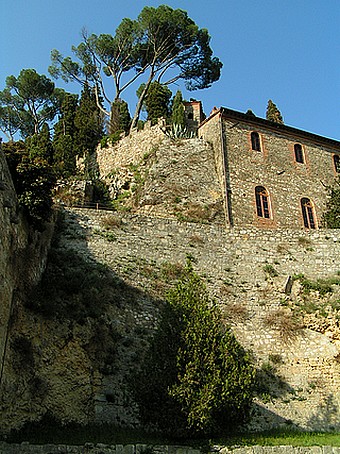
Cetona castle
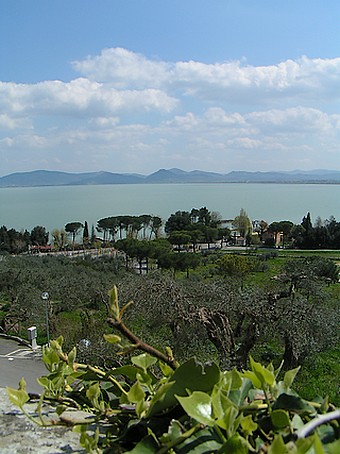
Trasimeno Lake
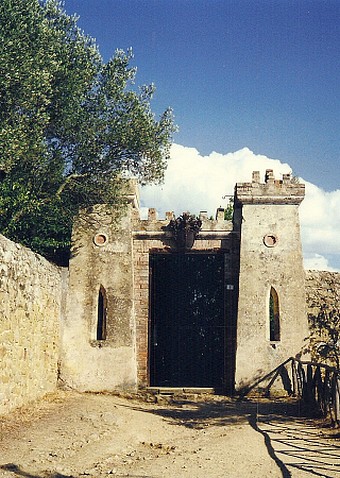
On an island of Lake Trasimeno
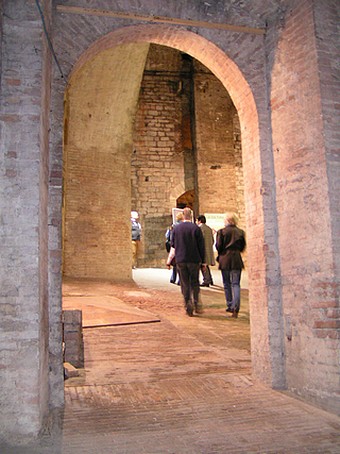
Perugia - Rocca Paolina
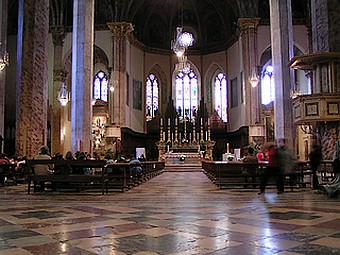
Cathedral of Perugia
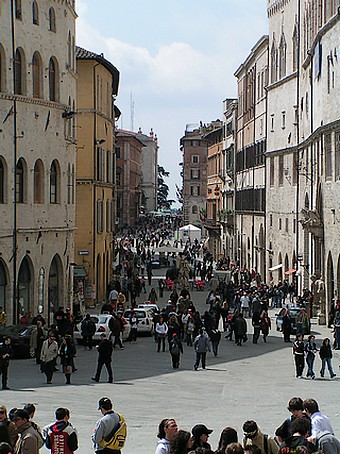
Corso Vannucci - Perugia
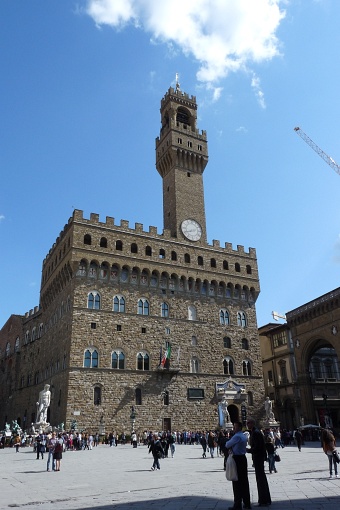
Palazzo Vecchio - Florence
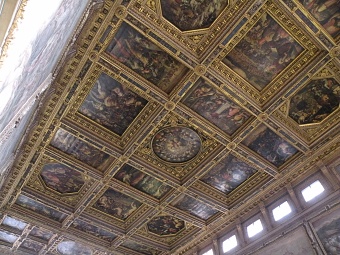
The ceiling of the great hall of Palazzo Vecchio
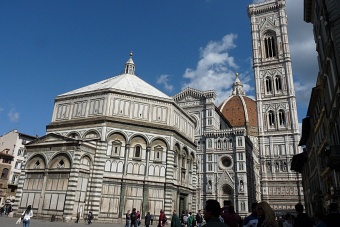
Cathedral of Florence

Cathedral of Florence - The bell tower
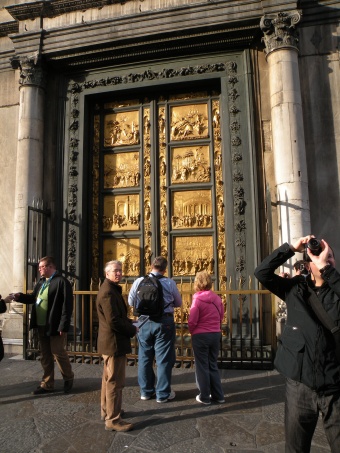
The door of the Babtistry of the Cathedral of Florence
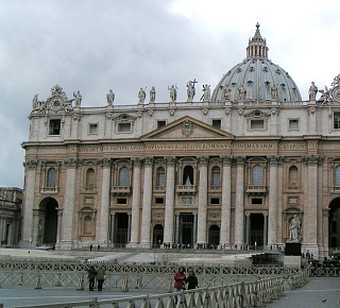
St. Peters in Rome
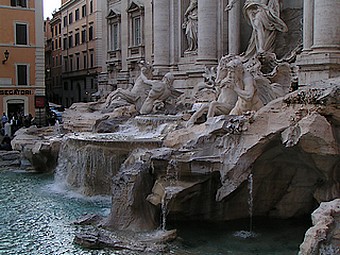
Fontana di Trevi
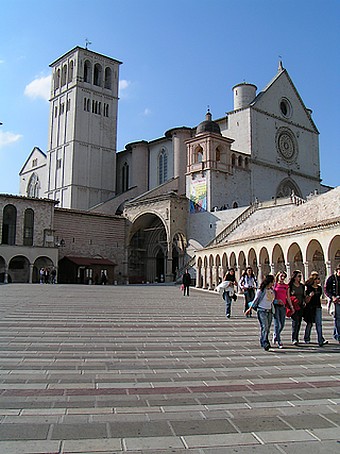
Basilica of St. Francis of Assisi
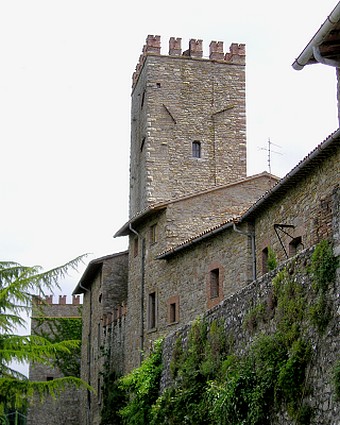
Parrano Castle
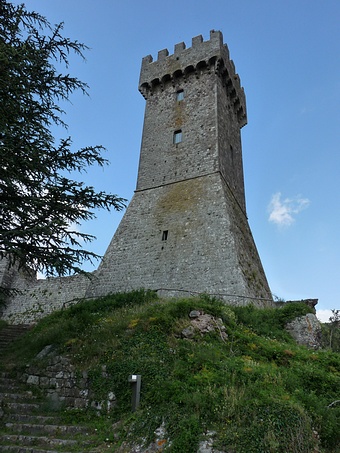
Castle of Radicofani
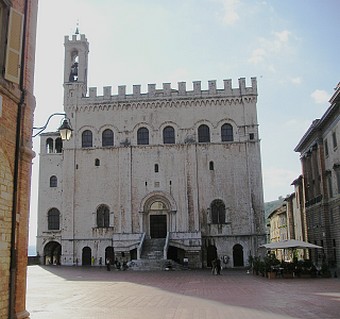
Duke's palace - Gubbio
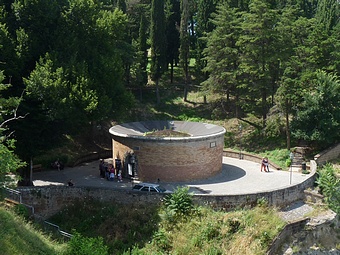
Well of San Patrizio - Orvieto
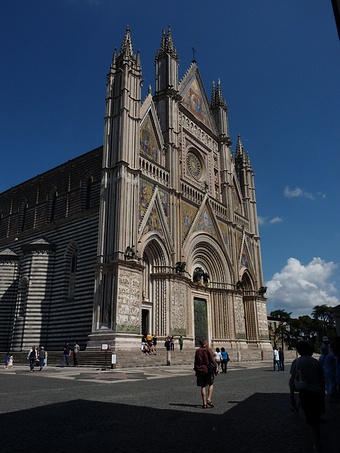
The gothic cathedral of Orvieto

